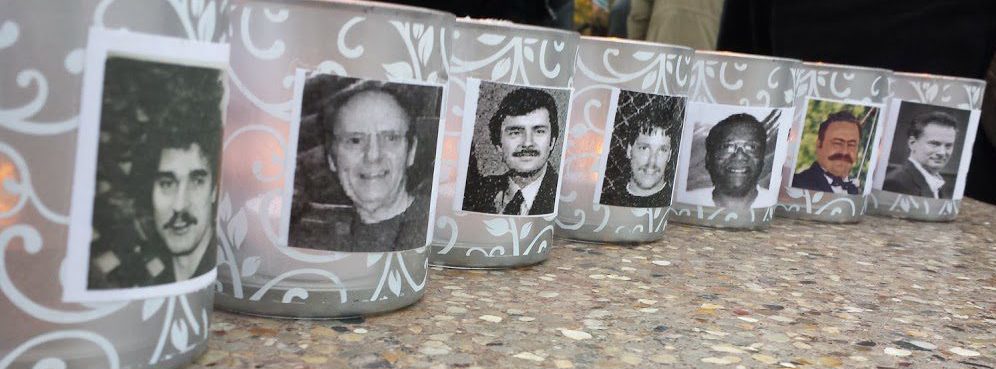On this special day, I’m sharing the stories of five exceptional Dads. They take their roles seriously but their ability to have a direct influence on their children’s lives is nonexistent…and heartbreaking. Despite the obstacles, their children look up to them with the greatest respect.
Michael Hirn is the youngest of five innocent but imprisoned men in Wisconsin. His only child was an infant when he was incarcerated in 1995. Now a young man, this son has only known his father’s presence from behind prison walls. He’s been forced to grow up without the intimate guidance and life experiences of a father but he relishes in knowing that his dad is innocent. I’ve received numerous pictures of them together during prison visits and although the guarded smiles on their faces tell of uncertainties for the future, I also see a closeness that will stay strong no matter what that future holds.
Keith Kutska shines through his son, Clayton, who is a father himself and a tireless supporter of his father’s innocence. Clayton states how extremely hard it has been to grow up without “my dad”. One only needs to look into their sad eyes to understand how this injustice has affected them both. Nonetheless, there will always be a mutual pride between these two men. For Keith it is a pride for the man his son has become. And for Clayton the pride is witnessing the courage of a father who has maintained his unrelenting innocence for twenty-three years. Both are strong father figures despite this predicament.
Dale Basten is the oldest of the five men. His two daughters do their best to go on with the many challenges of living a normal life. Dale has always been a devoted father and their deepest concerns for him have been his age and of his recent major heart attack in a prison system that lacks adequate health care. Some time ago the family was frantic when this health crisis occurred and no information about his condition was forthcoming until after the fact. In more recent years, Dale, who is now experiencing dementia, faces a bleak future with few options, as this injustice continues to plague this traumatized family.
Rey Moore’s faith has guided him along a very daunting path fraught with far too many disappointments during this turbulent time. It has helped him to maintain sanity but there is an element of deep distress when he writes about his children. Worry is the motivation in his pleas for me to make contact with them. Their survival in an unforgiving town has its challenges, as does Rey, within an unforgiving prison system.
Michael Johnson is also beholden to a faith that gives him strength and helps him to stay optimistic. His children and his wife, struggle to grasp the reasons for his absence, why such a fate has befallen them, and why it is that no one seems to care about the pain that persists in their hearts.
We must search deep inside ourselves to imagine the hardships of those who are faced with what has been lost and what can never be reclaimed. For these five men, twenty-three years are gone forever, never to be retrieved. We all must acknowledge the deprivation they experience. For it is far too easy for us to take lightly the privileges we’ve been given, and to overlook the pain of those who cannot. So when you celebrate this special day, please take a moment to silently remember these men and the countless other dads who sit quietly with little or no chance of experiencing those treasured moments with their children. I promise that you will become a better person for it!
